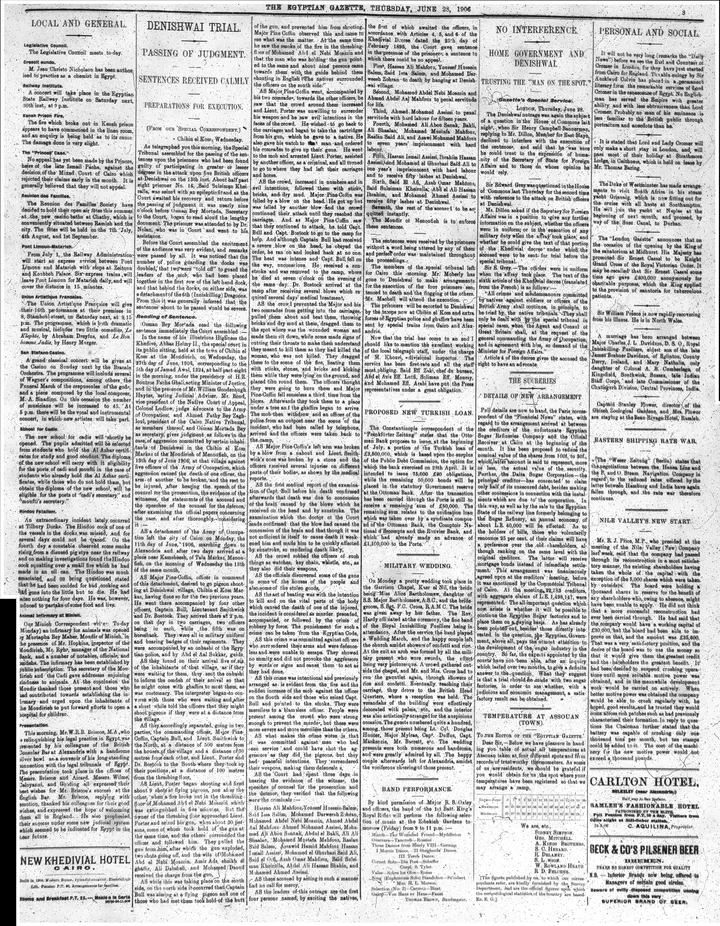Reading of Sentence
 June 28, 1906
June 28, 1906In the Egyptian Gazette, the third or fourth pages always begin to get deep into the local news, including stories of crimes, births, deaths, and all sorts of events. One very historical event in Egypt took place around this time - the Denshiwai Affair. On June 26, 1906, a lot of the information being released showed how the criminal trial was beginning to unfold. The trial took place in the Denshiwai village inside of Chibin el Kom, Egypt. A bad attack occurred between rebels and officers of the police force. There was a lineup of prisoners and witnesses who could speak and defend themselves, fairly similar to that of a modern day court system. It’s crazy to think how little the judicial system varies from country to country, especially over 100 years apart, when comparing it to the modern day American system. This seems almost similar to the current Black Lives Matter movements that have occurred across the United States in recent years, as police are being beaten and attacked along with people in the streets. It is interesting how closely history repeats itself.
On Wednesday and Thursday, June 28 and 29, 1906, respectively, the final information was reviewed and the sentences were given. The death penalty is decided as one of the most level-headed punishments for the offenders.
“Sentence of death was passed on the four following prisoners:
- Hassan Mahfouz (11)
- Youssef Hassan Salim (14)
- Said Issa Salim (25)
- Mohamed Darwish Zahran (48).”
Different encounters were mentioned in the case such as the possibility of premeditation, along with the death of Captain Bull, supported by any medical evidence available.
“AS the crowd prevented the Major and his two comrades from getting into carriages, pulled them about and beat them, throwing bricks and dry mud at them…” I like this statement from the Egyptian Gazette, as I think of it as a simile to the present-day life of a student in some ways. As a student myself, being overwhelmed with homework, exams, quizzes can really seem as if I was getting metaphorically beaten, having bricks and dry mud thrown at you. Of course, nobody should have to know the brutal beatings that Captain Bull, Lieutenant Smithwick, and Major Pine-Coffin, along with other innocent people had faced in this attack. All in all, this has been the most enjoyable part of the story of the attack at Denshiwai, as it used some very descriptive language, making it as easy as possible to see the brutal beatings that occurred on that day in 1906.